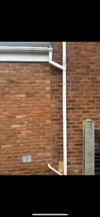- Joined
- 9 Dec 2024
- Messages
- 2
- Reaction score
- 0
- Country

Hi all, FTB here. Ive had an offer on a house accepted, the surveyor acting for the mortgage advisor has been unable to value the house, on the basis that he has noted that
there is structural movement in the form of cracking to masonry, and rhay i now need to get a structural engineer or chartered building surveyor to make a detailed investigation.
Ive seen the cracking they’re referring to, and wanted to check if this should be cause for concern.
We’re initially thinking we should be requesting the seller to pay the cost of the survey, but all advice is welcome.
there is structural movement in the form of cracking to masonry, and rhay i now need to get a structural engineer or chartered building surveyor to make a detailed investigation.
Ive seen the cracking they’re referring to, and wanted to check if this should be cause for concern.
We’re initially thinking we should be requesting the seller to pay the cost of the survey, but all advice is welcome.


